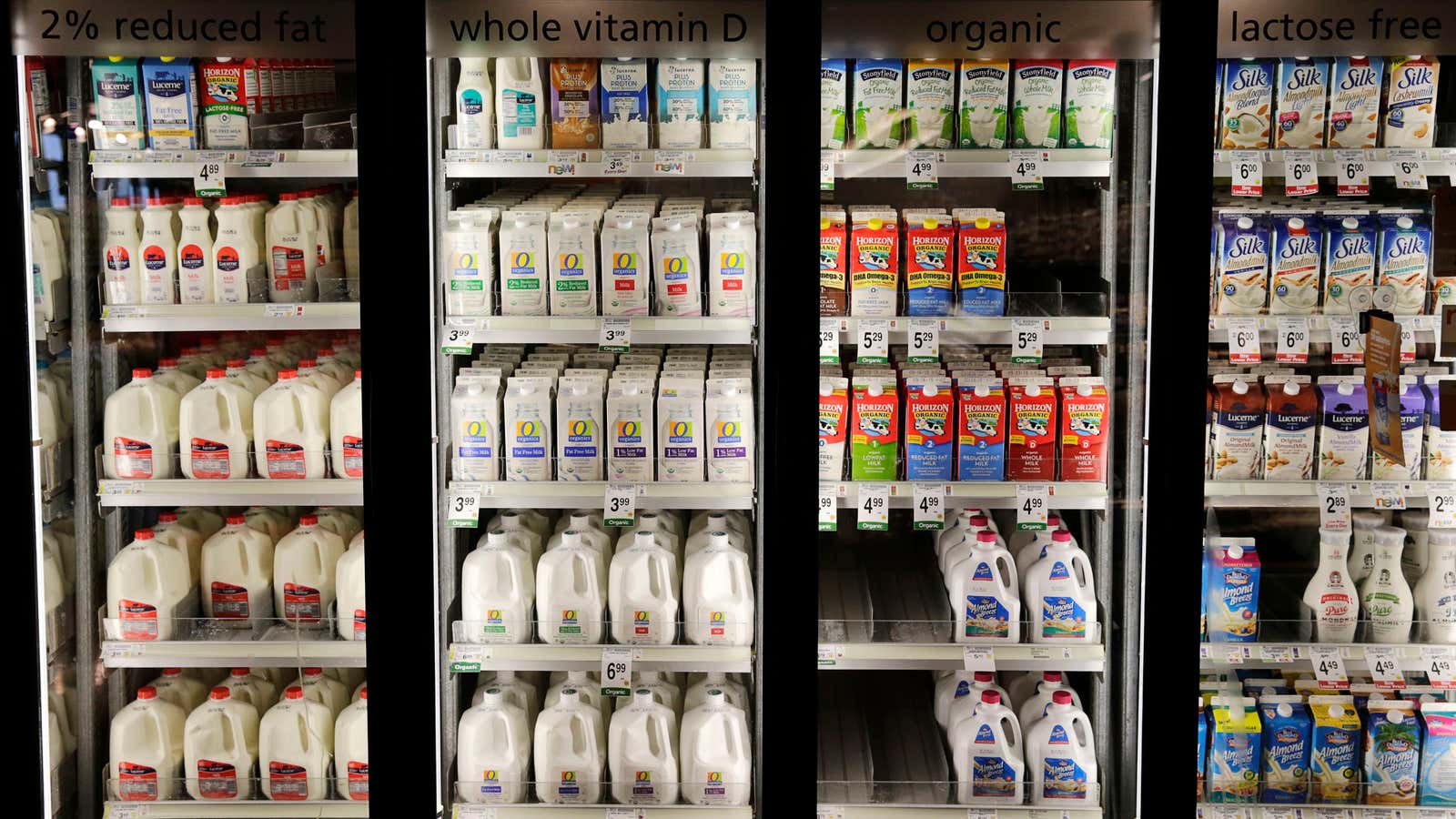The origin story of banana milk begins in the halls of the world’s eighth-largest bank, where a restless financier felt the itch for something new.
It was early 2012. A typical day for Jeff Richards included going to work at the BNP Paribas outpost in Dallas, and then heading over to CrossFit. The intense exercise was his outlet, and what pushed him to switch to a paleo diet, for which he gave up dairy.
And then—perhaps not surprisingly—he hurt his back. He stopped going to the gym and he started eating dairy again. That’s when Richards started feeling sick a lot.
“I’d become lactose intolerant,” he explains, which prompted him to start ideating as only an investment banker could: “Almonds had been done, so I thought: ‘What if we did something that’s an equity story for an equity product,’ and no one had done anything with bananas.”
So he played with the idea. He added cinnamon, sunflower seeds, a little salt, and water—and started a company named Mooala (pronounced moo-ah-la, not moo-la, if you’re wondering). Slowly, he introduced his banana milk into 15 stores in the Central Texas market during the summer of 2016.
So far, he says sales are solid in the already-competitive and crowded dairy aisles of grocery stores, joining the legion of almond milk, cashew milk, coconut milk, oat milk, soy milk, and (of course) actual cow milk brands that are vying for consumer attention.
In essence, Richards is bringing bananas to a dairy aisle knife fight.
“It’s turned out to be our best seller,” he says, noting how it performed against the company’s oat and almond milk products. “The banana milk has been absolutely our meeting-getter.”
Whole Foods Market took interest. The product was pushed more broadly into other parts of the Southwest, and then the Northeast, and then a little on the West Coast. Next it will be introduced to states in the Southeast US, and more in the Midwest. The company has expanded into an assortment of plant-based creamers, too.
Those products are in about 2,000 stores across America today. By the end of the year, Richards expects to be in 3,000 stores. So far, Mooala has raised at least $5 million, including from Texas-based venture capital firm Fort Ventures, according to Crunchbase.
The competition isn’t easy. As it turns out, dairy is perhaps the most dramatic section in the grocery store. As consumer interest in cow milk has declined across the last several decades, people have grown increasingly interested in plant-based alternatives.
This, and recent news about future flora-based milks, has dairy producers playing defense. The dairy lobby has even worked to pass laws in several states that would make it illegal to market their plant-based imitators as “milk” at all. It’s a strategy that’s mired in controversy, as plant-based food companies and the organizations who support them claim it’s an infringement on their constitutional right to freedom of speech.
Richards sees that food fight as unnecessary, and isn’t interested in wading in. For that reason he has gone to certain lengths on the Mooala website to try and brand his primary product in a very specific way.
“What we’ve done is try to protect ourselves as much as possible by making ‘bananamilk’ one big made-up word,” he explains.
If laws prevent him from using that term, though, he says he plans to make the necessary changes. “I’m a small fish in a big pond,” he says, adding that he’s even considered printing “not milk” in large type on his product packaging.
For now, banana milk isn’t widely available across the entire US, so it poses little threat to competitors. Plus, Richards says Mooala’s internal data show it’s most often purchased along with cow milk or a plant-based alternative. That means it’s more often an extra item being added to grocery carts, not a substitute for another item. For now.
